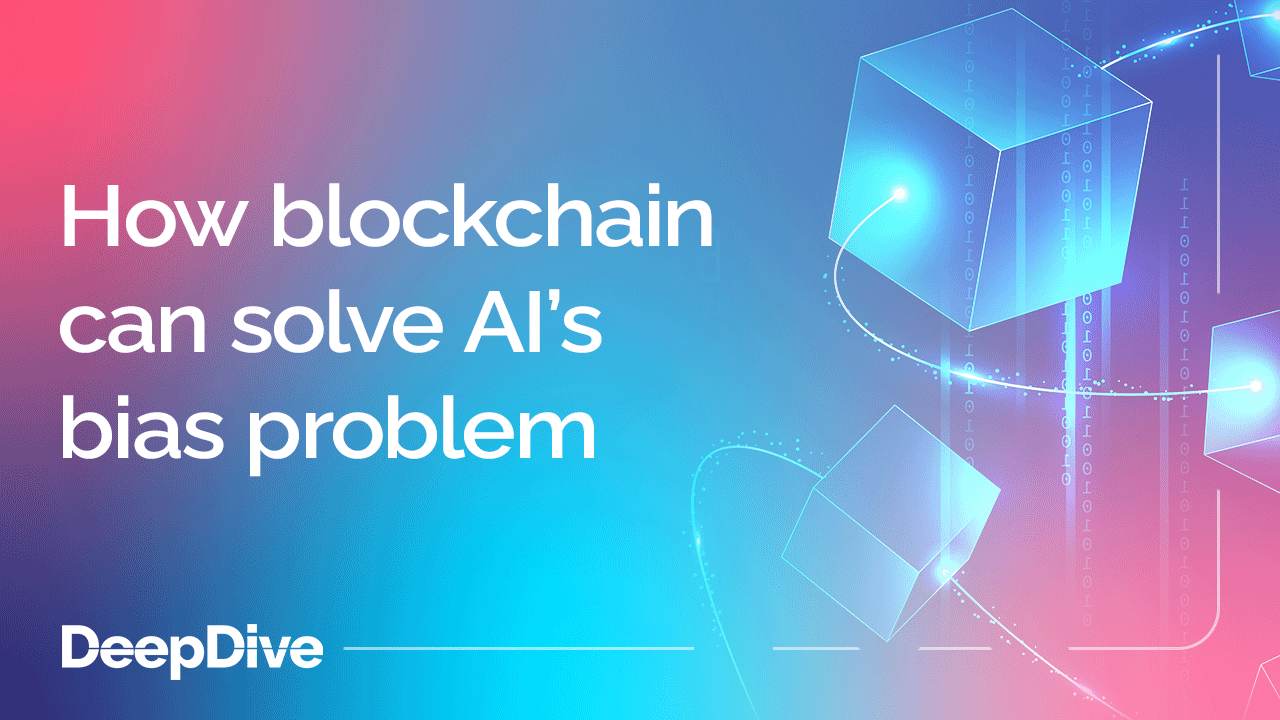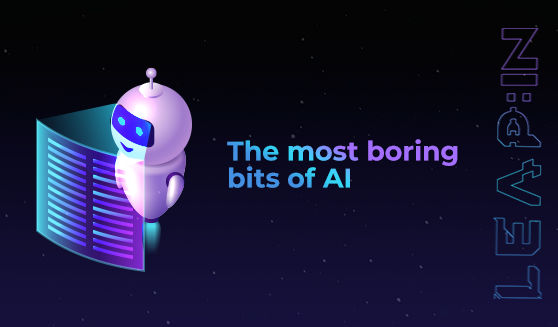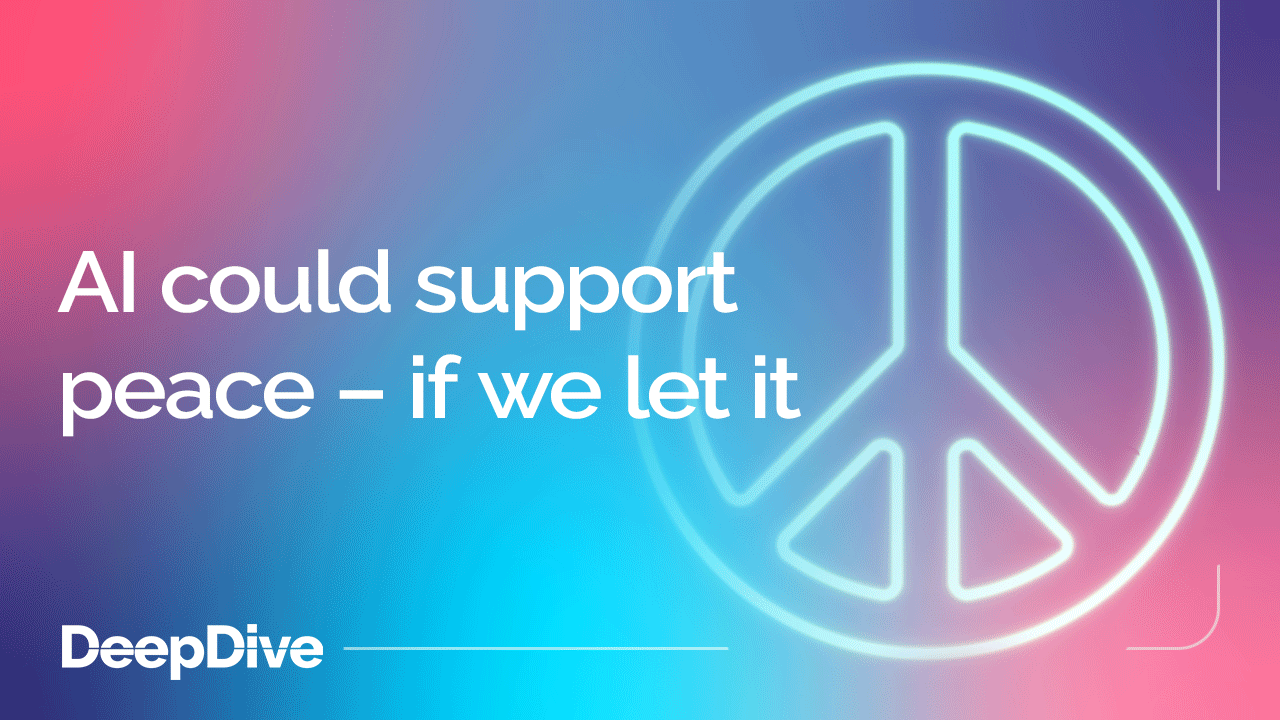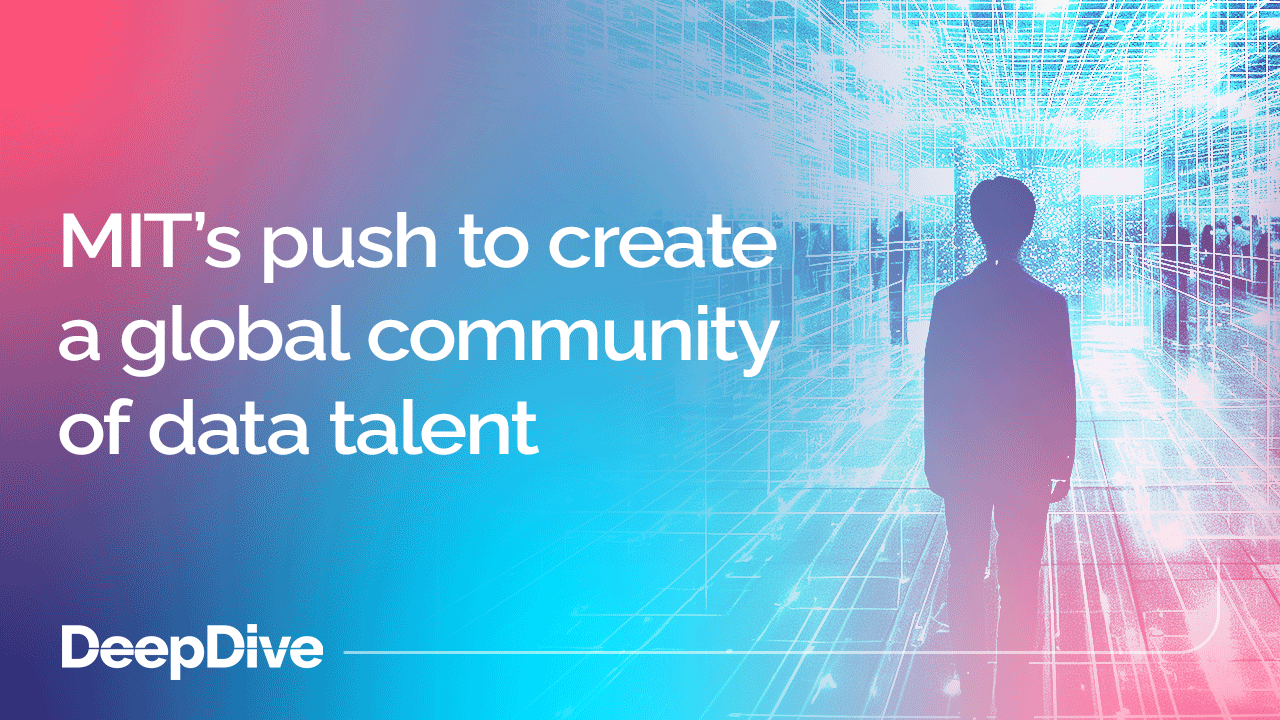

The most boring bits of AI

Welcome to the 77 new techies who have joined us since last Friday. If you haven’t already, subscribe and join our community in receiving weekly tech insights, updates, and interviews with industry experts straight to your inbox.
This week we’re quoting Dr. Istvan Petak (Physician-scientist, CEO at Genomate Health)
What Petak said:
“While it is definitely difficult to imagine in what direction AI will steer development of healthcare in the near or distant future, it is now no longer implausible to imagine AI becoming an integral component of healthcare services.”
In fact, it’s very plausible
We’re already seeing more and more healthcare providers integrating artificial intelligence into their operations and patient care. AI is speeding up diagnostics for patients and easing the workload for medical professionals – and we’re only now scratching the surface of what might be possible.
According to data from Grand View Research, the global AI in healthcare market size was valued at USD $15.4 billion in 2022. It’s expected to grow at a CAGR of 37.5% up to 2030.
This rapid expansion is driven by constantly growing data sets of patient health information, increasing demand for highly personalised medicine and treatment plans, and the pressing need to reduce costs of care.
AI systems hold the potential for accessible, affordable, high quality healthcare for everyone. So there's a huge incentive to explore every possibility.
Are we seeing new use cases for AI in healthcare?
Yes – all the time.
Investments are enabling innovation and cutting healthcare costs:
- In August 2023 the UK government allocated GBP £13 million to boost the use of AI in healthcare.
- In June 2023 the European Commission, in collaboration with Member States and 128 research and industry partners, launched €220 million of investment for testing and experimentation facilities for AI – citing healthcare as one of the areas for R&D.
- Healthcare spending on AI software is projected to grow by 40% in 2023 – from $4.4 billion in 2022 to $6.2 billion this year.
- In a paper published by the American National Bureau of Economic Research, researchers estimate that AI could lead to savings of 5% to 10% in US healthcare spending – that’s around $200 billion to $360 billion every year.
- The Kingdom of Saudi Arabia plans to invest 2.5% of its GDP (that’s about USD $16 billion) into AI research and development in 2040 – and applications for healthcare will be a key focus.
In 2022 and 2023, the healthcare sector has seen significant advancements in the application of AI and machine learning (ML) models. And many of those advancements are really exciting. We’ve written before about AI and haptic technology being used to train surgeons, for example; and how AI is enabling physicians to develop more personal services – and more personal relationships – with their patients.

But we’re exciting by the ‘boring’ applications of AI, too
You know LEAP – we love getting excited about cutting edge technologies and sci-fi worthy innovations. But when it comes to AI in healthcare, we’re also very excited about the boring stuff.
Yep: we’re talking about paperwork.
Stay with us.
Because here’s the thing: one of the big challenges that medical professionals face worldwide is a constantly growing volume of paperwork. It’s required by hospitals and legislative bodies, to record patient and practitioner data and safeguard patient well-being.
But it takes time – and time research shows that physicians wish they could spend less time on paperwork, and more time working directly with patients.
AI can help that happen. One of the most practical (and feasible) uses of AI in healthcare is to ease the pressure that doctors and nurses are under to produce and manage medical documentation.
Technology can help to automate the process of creating medical records – which would otherwise take hours out of a physician’s day.
Here’s a handful of real-world case studies:
- A hospital called TidalHealth Peninsula Regional uses IBM Micromedex with Watson. The hospital partnered with IBM to implement clinical decision support software – which combines electronic medical records with AI-powered decision support to allow clinicians to find relevant information easily, and significantly reduce admin time.
- Kaiser Permanente (one of the largest health plans in the US) and John Snow Labs’ AI platform. Kaiser Permanente uses the AI platform to deliver accurate and scalable pipelines for numerous different tasks, including healthcare specific tasks like biomedical named entity recognition and diagnosis and medication extraction processes.
- Mount Sinai’s in-house AI R&D strategy. This one isn’t only focused on medical documentation – but Mount Sinai hospital has a progressive approach to AI research and development. An in-house AI team works on tools for use in clinical care, and then applies and tests them within the hospital.
AI = the potential for medical professionals to practise more medicine
In a nutshell, one of the reasons we think AI will absolutely become integral to healthcare is because it can enable medical professionals to do more medicine.
When doctors, nurses, and midwives can focus more on patient care and less on administrative processes, everyone wins.
Before you stop reading...👀
Get your copy of the two latest articles of LEAP's quarterly digital magazine - LEAP Forward ⬇
Explore the ground-breaking advancements in technology, from AI and robotics to virtual reality and beyond. Discover how these cutting-edge technologies are reshaping industries, revolutionising healthcare, transportation, and communication, and transforming our lives.
The second article features the launch of Beem, a cutting-edge VoIP app designed to address Saudi Arabia's growing need for fast and reliable communication. The launch was announced at LEAP 2023 this year. Find out how Beem is revolutionising the way we connect with one another.

Have you subscribed to DeepFest AI's weekly newsletter yet? 📩
#DeepDive is going to cover all the latest in AI every Wednesday. Stay tuned for leading industry expert interviews, the latest AI #innovation discussions and deep dives into the applications of new #AI tech.
Have an idea for a topic you'd like us to cover? We're eager to hear it! Drop us a message and share your thoughts.
Catch you next week,
Richard McKeon
Marketing Director
P.S. - Mark your calendars for LEAP 2024 📅 4-7 March 2024. Want to be a part of the action?





